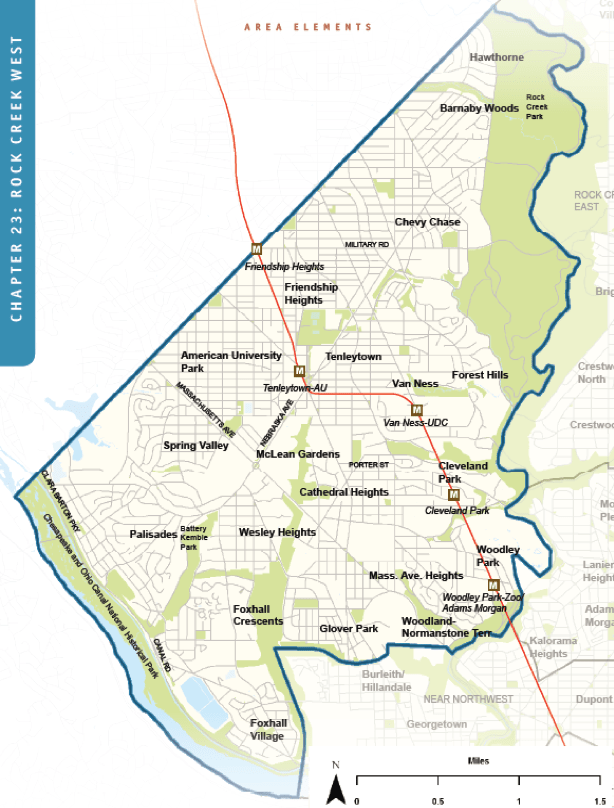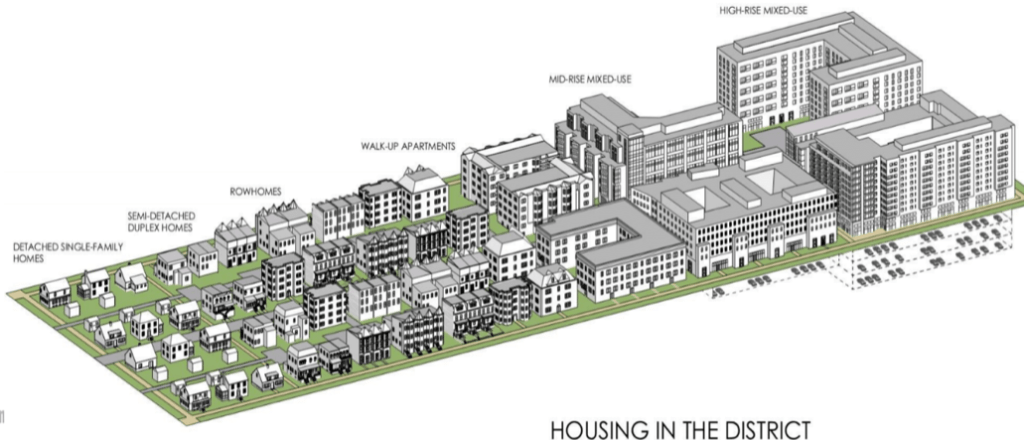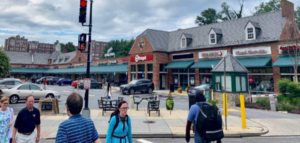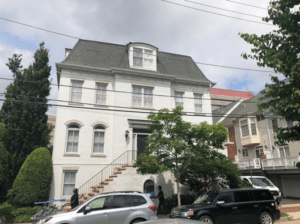Top Story
Date: July 7-12, 2019
Location: Washington, D.C.
Sponsor: Office of the Deputy Mayor for Planning and Economic Development (DMPED), District of Columbia Office of Planning (DCOP), Department of Housing and Community Development (DHCD), and The ULI Foundation
Subject Area: Affordable Housing
Panel Chair: Philip Payne, Ginkgo Residential – Charlotte, North Carolina
Download Report
View Presentation Recording
Background and Panel Assignment
An advisory services panel made recommendations to Washington, D.C. Mayor Muriel Bowser on increasing the supply of affordable housing in the Rock Creek West Planning District, which includes Ward 3, parts of Wards 2 and 4, and is one of the District of Columbia’s most affluent areas.
 The panel is part of a series of ULI panels that assist some of the nation’s most expensive cities with strategies to increase access to affordable and mixed-income housing – a priority for many areas seeking to attract and retain talented workers in various stages of their careers. This work builds on previous panels focused on housing affordability, including panels addressing housing challenges in Chicago, Illinois; Naples, Florida; Los Angeles, California; and Dallas, Texas.
The panel is part of a series of ULI panels that assist some of the nation’s most expensive cities with strategies to increase access to affordable and mixed-income housing – a priority for many areas seeking to attract and retain talented workers in various stages of their careers. This work builds on previous panels focused on housing affordability, including panels addressing housing challenges in Chicago, Illinois; Naples, Florida; Los Angeles, California; and Dallas, Texas.
Increasing the supply of affordable housing throughout urban areas is a major part of ULI’s ongoing efforts to improve the quality of life in communities globally. ULI’s Terwilliger Center for Housing recently published Attainable Housing: Challenges, Perceptions and Solutions, which explores impediments to providing affordable and moderate-income housing and offers solutions to overcome the obstacles.expensive cities with strategies to increase access to affordable and mixed-income housing – a priority for many areas seeking to attract and retain talented workers in various stages of their careers. This work builds on previous panels focused on housing affordability, including panels addressing housing challenges in Chicago, Illinois; Naples, Florida; Los Angeles, California; and Dallas, Texas.
The panel assignment stemmed from the mayor’s plan to provide 36,000 housing units across the city by 2025, with 12,000 of those being low-and moderate-income units. Panelists evaluated how to distribute the affordable housing units more equitably across the city, with a specific focus on the placement of units in the Rock Creek West area.
Specifically, panelists considered and provided strategic recommendations on:
- Identifying and prioritizing the barriers to new housing production, focusing on an area of D.C. characterized primarily by single-family homes and corridors of more dense development;
- Outlining specific tools, policies and changes that will enable the District to overcome cost barriers and development capacity constraints;
- Developing a strategy to produce a significant amount of affordable housing in Rock Creek West over the next six years; and
- Identifying opportunities to increase residents’ engagement with and support for affordable housing in Rock Creek West.

Summary of Recommendations
After further research of the subject area the panel produced thoughtful recommendations that would benefit and solve the questions within the panel assignment. Their goals and recommendations included:
Goal: Streamline and Improve the Development Process
- Create Small Area Plans for commercial activity centers
- Create zoning regulation that incorporates key provisions of the typical Planned Unit Development
- Closely examine codes, including the historic preservation designation process, regulations and programs for unintended consequences
- Require posting of a legal bond prior to filing of a land-use lawsuit

- Seek funding to create a legal defense fund
- Eliminate minimum parking requirements, better manage on-street parking, and direct proceeds toward the surrounding areas
- Partner with community land trusts (or other shared-equity homeownership models) to expand affordable, sustainable homeownership activities
- Undertake a proactive land-acquisition strategy for affordable housing development
- Promote construction and conversion of ADUs, by streamlining the construction and conversion process and expanding subsidy programs
Goal: Gain Community Support: Outreach, Marketing & Education
- Create a Marketing & Education Campaign to Communicate vision to stakeholders and create political will for support
- Adopt a proactive strategy for more intensive use of community serving real estate
Goal: Creating More Housing

- Focus on the Reuse of Commercial Corridors as a Vehicle for Creating Housing
- Consider master-leasing existing housing on a trial basis
- Allow “gentle density” increases in all RCW neighborhoods
- Up-zone specific areas near transit within ½ mile metro stops and ¼ mile from bus corridors
- Reform Inclusionary Zoning
- Create by-right density bonus for affordable housing